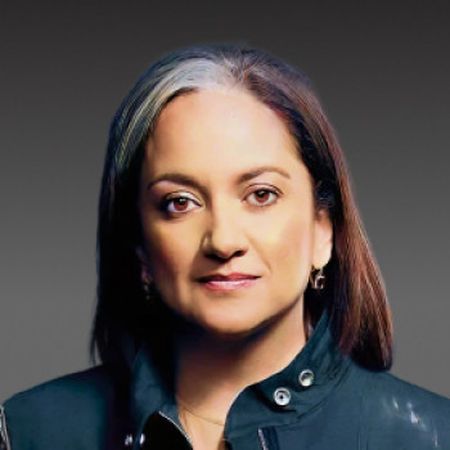It took International Court of Justice (ICJ) President Judge Joan E Donoghue less than an hour to order a decisive turn in what the Court agreed is the “death and despair” haunting Gaza.
A majority of 15 and 16 judges on a bench of 17 granted most of the measures requested by South Africa to prevent a rising genocide in Gaza and the rest of Palestine. But it stopped short of the most important — ordering a ceasefire in a three-month-long war.
The Court said that while accurate figures are not available, it accepted that the war had caused the deaths of 25,700 people, most of whom are women and children.
More than 63,000 people had been injured, while over 300,000 homes (the majority of Palestinian housing stock) had been destroyed.
Read more in Daily Maverick: Middle East crisis news hub
While the ceasefire request failed, the Court sought to bind Israel’s hands, ground its jets and effectively empty the bullet chambers of its guns with its order. But this is only if Israel accedes to the Court’s order.
The Court ordered Israel to:
- Take all measures to prevent killings, severe mental and bodily harm, and cease preventing care during births in the (Palestinian) group;
- Take steps to ensure the military forces do not cause the above acts (this may be tantamount to a ceasefire);
- Take steps to limit the adverse conditions of life in the Gaza Strip (this is to allow humanitarian aid to flow freely and to stop communications and other blockades); and
- To submit a report to the Court by 26 February on progress and that this report will be shared with South Africa.
International Relations Minister Naledi Pandor said the effect of the order was tantamount to a ceasefire, but Israel disagreed in first reactions.
Judge Donoghue said the order is binding. The jury is out on whether Israel will accede because it has historically ignored international UN resolutions to stop international humanitarian laws in Palestine.
The order was made to preserve the future rights of Palestinians (once the substantive genocide case is heard) and to stop the ongoing killings and humanitarian disasters unfolding.
The Court agreed with South Africa’s argument that there was a plausible case of genocide to be heard but made it clear in numerous parts of the order that it made no finding on whether there was an ongoing genocide.
Judge Donoghue quoted various heads of UN agencies who found that Israel’s operations were “causing massive civilian casualties and displacement”.
“The court is acutely aware of the extent of the human tragedy and concerned by ongoing loss of life,” said Donoghue in her opening statement.
SA Jurisdiction
By a substantial majority, the ICJ found that South Africa had a prima facie case and jurisdiction to bring the case. Israel had sought to have the case thrown out. The Court agreed there was a dispute between South Africa and Israel. It reaffirmed that a ‘common interest’ in preventing genocide applied from ‘one to all’ parties to the 1948 Genocide Convention, regarding which SA ought to order. Israel argued there was no dispute with South Africa and therefore no legitimate case before the ICJ.
The Court agreed with UN statements that a substantial proportion of Gaza’s two million people would carry lifelong scars and had been impacted by the war now just over 100 days long. It quoted UN agencies who had said: “An entire generation of children is traumatised and will take years to heal”. It also accepted UN data, which showed a looming famine in Palestine, with 93% of people going hungry and most not having access to potable water.
The ICJ also appeared to accept South Africa’s argument on the genocidal intent of Israel. It said that statements by Israeli leaders, including its President Isaac Herzog, dehumanised Palestinians.
The Israeli Attorney-General belatedly announced an investigation into these statements. While welcoming this, the Court said it was still sufficient to conclude that at least some of the rights sought by SA are plausible.
/file/dailymaverick/wp-content/uploads/2024/01/20V3353.jpg)
Ferial’s view
It’s an almost slam-dunk human rights victory for South Africa, which always knew it was unlikely to get a ceasefire. The preventive measures ordered should bring succour to Palestinians still dying in scores every day. It should open up humanitarian corridors because the Court has ordered a short-term return date for a progress report on 26 February. Of course, it may not if Israel decides not to accede.
The most important outcome is the fact that a genocide case will be heard, likely for years. This means Israel’s allies will think several times before supplying arms and turning a blind eye to its human rights abuses.
Impunity is deep in the world, and while the debate will now be on how much effect the court order will have, at least for today, the rights of peace have vanquished the impunities of war. DM





 President Cyril Ramaphosa is embraced by the deputy Ambassador of Palestine Bassam Elhussiny at Birchwood Hotel during the the outcome of the International Court of Justice ruling on 26 January, 2024. (Photo: Felix Dlangamandla)
President Cyril Ramaphosa is embraced by the deputy Ambassador of Palestine Bassam Elhussiny at Birchwood Hotel during the the outcome of the International Court of Justice ruling on 26 January, 2024. (Photo: Felix Dlangamandla)